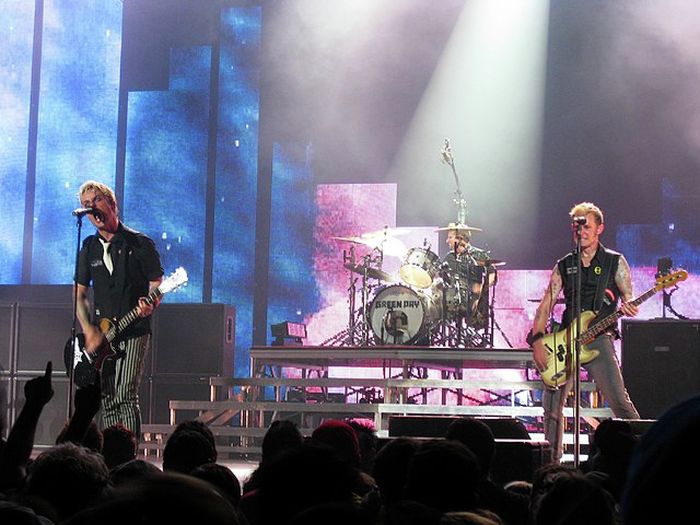‘Fleeting emotions and glimpses of meaning’: Sampha’s Lahai
Sam Post explores the emotional depth and innovative production on Sampha’s latest album

On Sampha’s latest album Lahai, the UK R&B and soul artist combines big-picture themes of family, love, and loss with beautiful vocals, production, and songwriting. Coming six years after the Mercury Prize-winning Process, this album sees Sampha explore his personality and spirituality, resulting in a deeply personal and emotional record.
“A deeply personal and emotional record”
The album is characterised by frantic and tense instrumentals. Its opener ‘Stereo Colour Cloud’ sees Sampha’s voice flow over scattered hi-hats and, on the standout track ‘Dancing Circles’, his vocals echo over an insistently repetitive keyboard part. The following song, ‘Suspended’, heightens this panicked atmosphere through a strained falsetto. On ‘Only’, the record’s lead single, Sampha decries the “projectiles coming for my life” and the “warzone when I close my eyes”, highlighting the mental turmoil he is struggling to overcome.
Lahai’s instrumentals intensify these emotions. The contrast between the agitated production of ‘Dancing Circles’ and the warmth of Sampha’s voice as he sings about “dancing hand in hand with you” develops the themes of loss and love which shape the album. Loss is especially significant in Lahai, from the heart-wrenching final lines of ‘Dancing Circles’ (“we were two birds / flying away from each other / looking for each other”) to Sampha’s plea for “some tenderness” on ‘Inclination Compass’, perhaps his most emotional song to date.
Flight becomes an extended metaphor throughout the album, as Sampha uses it to explore his personal growth. He relates this development to Jonathan Livingston Seagull, a 1970s novella in which a seagull learns about freedom and self-realisation. On ‘Jonathan L Seagull’, Sampha asks, “how high can a bird ever fly?”, questioning whether his ambitions are realistic. Sampha’s use of group vocals is a highlight of this song. As other vocalists were missing from his debut album, Process, their presence adds greater depth to tracks like ‘What If You Hypnotise Me’.
One of the most ambitious and well-executed elements of the album is Sampha’s exploration of time. On ‘Time Piece’, a French voice repeats, “Time does not exist. A time machine”. These vocals reappear on the next track, ‘Can’t Go Back’, in which Sampha rejects the warnings of his heart, brain and veins that he can’t go back to happier times. On ‘Satellite Business’, Sampha questions whether our lives and experiences ever really end or, indeed, begin. These quasi-philosophical explorations of time and our place offer an insight into Sampha’s headspace during the six years since his last release. By the end of ‘Can’t Go Back’, however, Sampha seems to have solved his existential crisis, deciding to “move forward slower” – both a resolution and a piece of advice. Growth and realisation inform the album’s narrative arc while relating to the theme of flight: just like Jonathan L Seagull, Sampha is learning to spread his wings.
“Just like Jonathan L Seagull, Sampha is learning to spread his wings”
Fatherhood and family are important to Sampha, as demonstrated by ‘Evidence’, in which Sampha writes to his daughter, explaining that she is “enough evidence for me” – fatherhood has changed Sampha’s perspective on life, and he has realised his family is all he needs. This track contains some of the most poignant lyrics of Sampha’s career: “when the cruelties, screaming won’t subside / an angel is teething, giving me more reasons / to watch what I’m eating and how I spend my time”. Combined with Sampha’s standout voice, these lyrics resonate even more. By the end of the album, Sampha has realised how he wants to live, taking care of his health and his time. The album closes with him “laughing in the face of adversities” and taking a photograph with his family.
Lahai is undoubtedly Sampha’s most ambitious and unique work yet, propelling R&B forward through scattered, electronic production and nuanced themes. The album is well-sequenced and watertight; every track plays a role in the creation of one of the most beautiful soundscapes of 2023. Both emotionally challenging due to the tense and frantic production of its opening tracks and optimistic by its end, Lahai succeeds in capturing fleeting emotions and glimpses of meaning through unusual metaphors and stunning vocal runs. Lahai was certainly one of the strongest projects of 2023 – and Sampha’s best, achieving an emotional impact that Process couldn’t, and offering a deeper and more moving look at Sampha’s personal development.
 News / CUP announces funding scheme for under-represented academics19 December 2025
News / CUP announces funding scheme for under-represented academics19 December 2025 News / Cambridge welcomes UK rejoining the Erasmus scheme20 December 2025
News / Cambridge welcomes UK rejoining the Erasmus scheme20 December 2025 News / SU reluctantly registers controversial women’s soc18 December 2025
News / SU reluctantly registers controversial women’s soc18 December 2025 Film & TV / Timothée Chalamet and the era-fication of film marketing21 December 2025
Film & TV / Timothée Chalamet and the era-fication of film marketing21 December 2025 Features / In-person interviews through student helpers’ eyes20 December 2025
Features / In-person interviews through student helpers’ eyes20 December 2025










